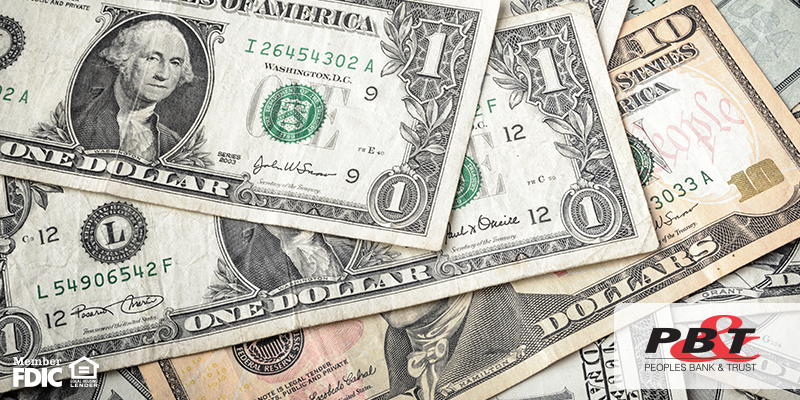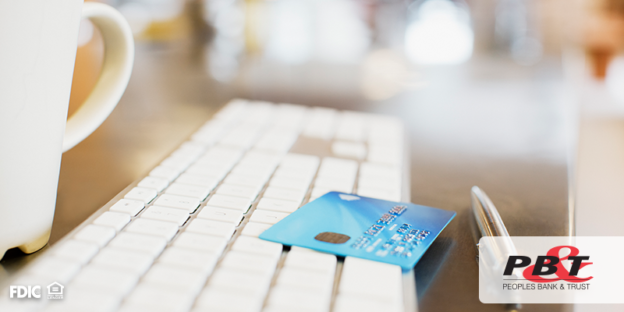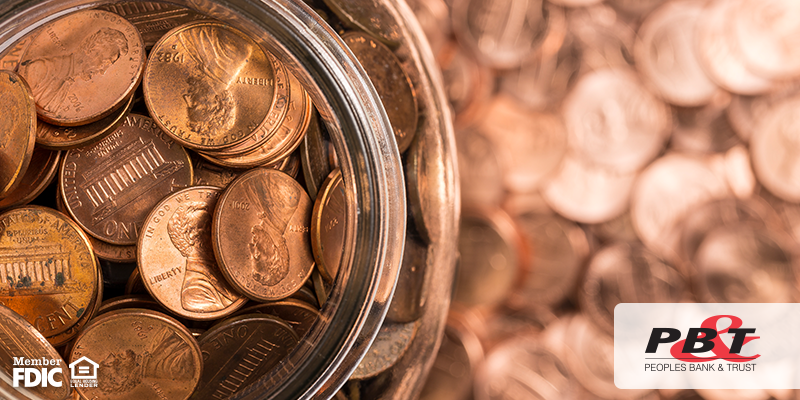
With your babies growing up, it’s never too soon to start teaching them the art of being fiscally responsible – but where do you start? According to the Council for Economic Education, only 17 U.S. states require high school students to take a personal finance class in order to graduate. Peoples Bank & Trust offers some great ideas on how you can begin teaching your child about financial literacy.
How does credit work?
A lot of kids don’t know what credit actually means. It’s important to teach your child that credit means to borrow, but at a cost. You will need to explain the importance of a credit card and how keeping balances low are a good plan of action. You can also begin to discuss interest rates, annual fees and how they can check their credit report.
Everyone has to pay taxes.
Starting a lawn mowing business or babysitting will not be the same pay as when your child gets an actual job. If your daughter gets paid $12 an hour to babysit, she gets to take all of that home. Emphasize that she will have to pay taxes and talk about how some of that would be taken out to fix roads. This will prepare them for the future, so they can budget responsibly when waiting on that first paycheck. Since 2016, no state has added a personal finance course to their K – 12 grades. It is up to you to advocate for your child and make sure they understand all things financial.
What is a want vs. a need?
We all want the next cute pair of shoes or cool car, but we need to be realistic with our spending. Start making your child pay for gas, a portion of groceries and other little expenses. This will help show them what types of things they need money for, what portion should be put into savings and what is left can be spent on what they want – after their needs are secured.
You must budget to buy.
Start by having your child put aside 30% of their money for short-term savings and 30% for long-term. Another 30% can be cash they spend on whatever they need, and 10% could be put towards charity or another good cause to teach them giving back. Explaining to your kid what to do with money once it’s earned is commonly a missed step, so this will help you implement good habits.
How do I plan for college?
Begin going over different loan options such as federal and private loans. Explain how they can have an auto-pay set up to pay their bills on time. Seeking out scholarships is also an important point to place in their head. The average student loan balance is $34,144 as of 2017, so they can save a lot of money by getting a scholarship.
Preparing your child for the future is quite the undertaking – especially when it deals with covering topics such as finance. However, your child will thank you when they have fantastic budgeting and savings skills down the road! If your child is interested in opening a savings or checking account, give us a call! We’d love to help teach them other financial literacy topics.
Peoples Bank & Trust Co.
Member FDIC
Equal Housing Lender




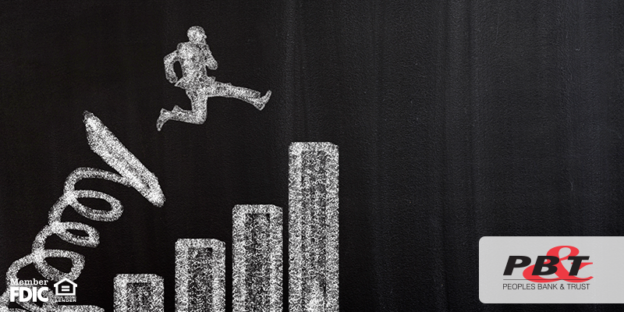
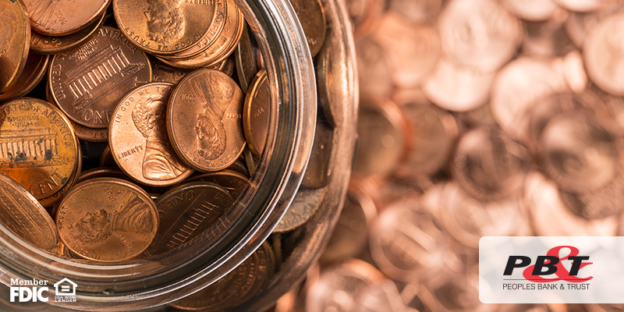
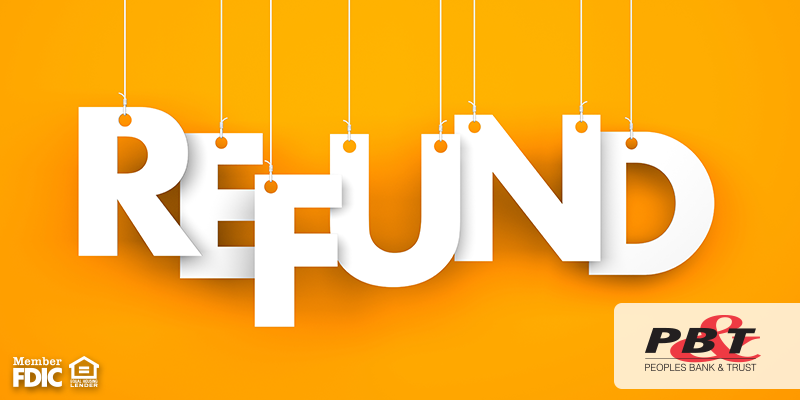
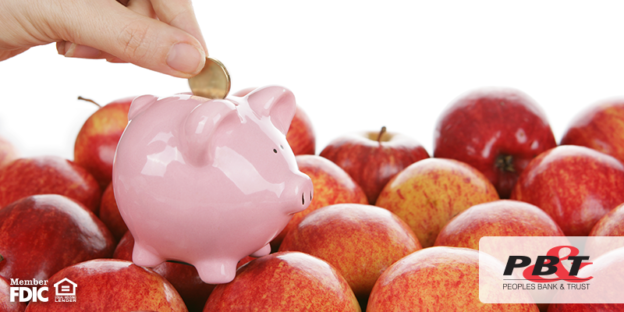
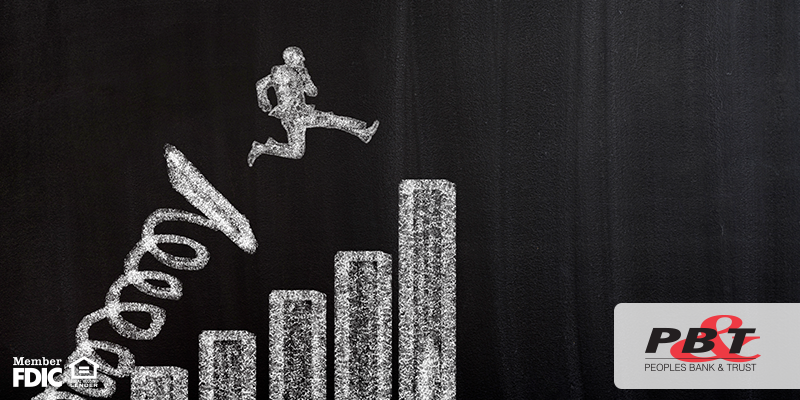 Starting a Financial Fitness routine may be one of the best things you can do for your health. You may not realize it, but financial stress can take a toll on your physical and emotional well-being. If you are one of those who have or are experiencing financial stress, you are not alone. In fact, the leading stressor of Americans is related to finances. Stress if left unchecked, can lead to changes in your body and mood such as: heart disease, obesity, headaches and depression. Whether you are unemployed, have a growing stack of debt are simply bad at money management, you can start working your way to a healthy lifestyle starting with these five steps!
Starting a Financial Fitness routine may be one of the best things you can do for your health. You may not realize it, but financial stress can take a toll on your physical and emotional well-being. If you are one of those who have or are experiencing financial stress, you are not alone. In fact, the leading stressor of Americans is related to finances. Stress if left unchecked, can lead to changes in your body and mood such as: heart disease, obesity, headaches and depression. Whether you are unemployed, have a growing stack of debt are simply bad at money management, you can start working your way to a healthy lifestyle starting with these five steps!